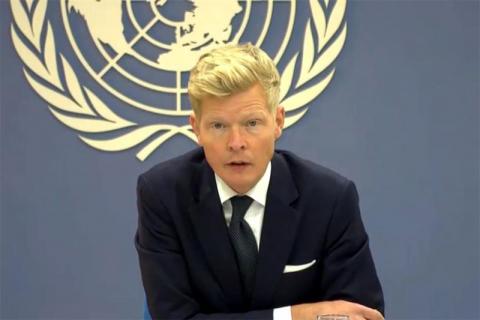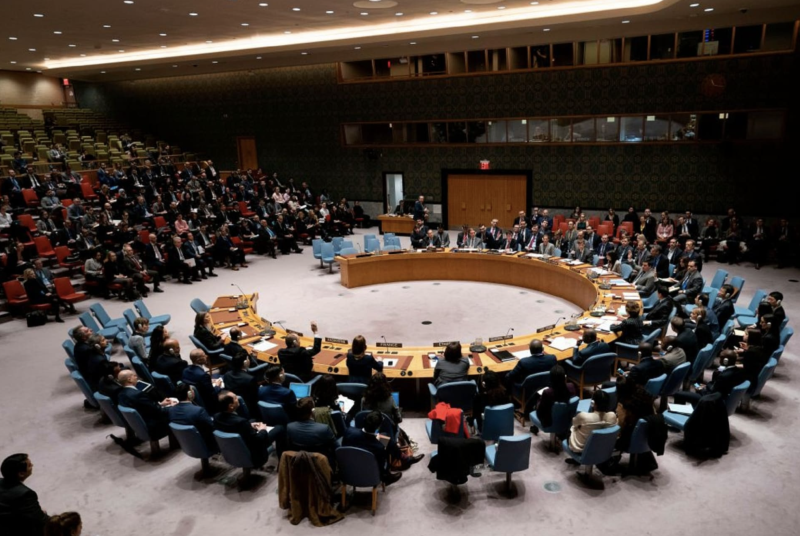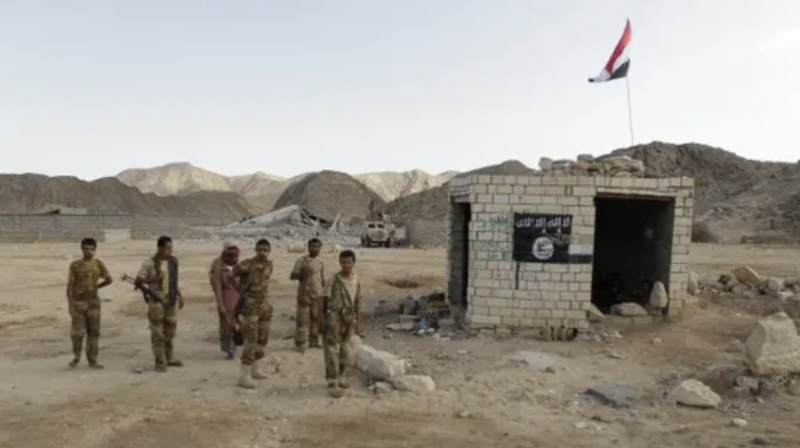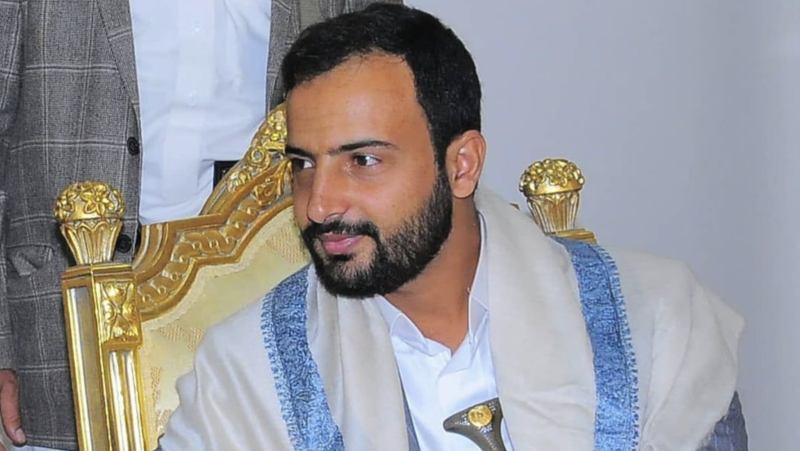Houthi Offensive ‘Primary Obstacle’ to Peace in Yemen, Says U.S. Special Envoy Lenderking


Envoy says U.S. diplomacy has produced ‘two important building blocks to pave the way for peace.’
The Biden administration’s diplomatic efforts toward ending the war in Yemen are yielding international consensus on the need for a cease-fire and a more inclusive peace process, U.S. Special Envoy for Yemen Timothy Lenderking said on February 8.
However, Lenderking added, a military offensive by Houthi rebels is a major obstacle to those peace efforts.
Lenderking delivered the keynote remarks at an event co-hosted by the U.S. Institute of Peace (USIP) and the United Nations Development Programme (UNDP). He said U.S. diplomatic efforts have resulted in “two important building blocks to pave the way for peace in Yemen.” First, he said, “we have growing international consensus on the need for a cease-fire and a political solution.” And second, he added, “we have momentum around a more inclusive peace process that takes into account diverse views across Yemen and seeks to amplify the voices of the vast majority of Yemenis who are calling for an end to the fighting.”
The war in Yemen, which started in 2015 and involves the Ansar Allah movement, known more widely as the Houthis, on one side and a Saudi-led coalition on the other, has resulted in the deaths of tens of thousands, displaced many more and pushed a large part of the country’s population into poverty and food insecurity. These challenges have been exacerbated by the COVID-19 pandemic.
President Biden appointed Lenderking as his special envoy in February 2021. Lenderking most recently traveled to Gulf capitals last month to urge the parties to deescalate and protect all civilians, support a United Nations-led inclusive peace process and do more to mitigate the humanitarian and economic crises facing Yemenis.
A Complex War
The war has its roots in the failed political process following the 2011 Arab Spring that forced the country’s authoritarian ruler, Ali Abdullah Saleh, to hand power to his deputy Abdrabbuh Mansour Hadi. As Hadi struggled to govern, the Houthis, sensing an opportunity, seized territory in the north and eventually the capital Sana‘a in 2014 with the support of forces loyal to Saleh. Hadi fled into exile in Riyadh where he remains to this day. In 2015, a Saudi-led coalition started carrying out airstrikes against the Houthis with the aim of restoring Hadi to power, but also keeping Iranian influence in check. Saudi Arabia and many others consider the Houthis to be part of an expansionist Iranian agenda in the region.
Last year, the Houthis set their sights on the city of Marib, located in an oil-rich region and a key stronghold of Hadi’s internationally recognized government. Lenderking described the Houthis’ offensive in Marib as “the primary obstacle to peace efforts.” Late last year, Houthi rebels also detained Yemenis who used to work at the U.S. Embassy in Sana‘a. Lenderking said the United States is committed to the safe return of these detainees.
Yemen’s war often spills over into its neighborhood. In January, the Houthis conducted drone and missile strikes against the United Arab Emirates, which is part of the Saudi-led coalition. The UAE also supports a Yemeni militia named Giant’s Brigade that has dealt setbacks to the Houthis’ plan of taking Marib. Saudi Arabia responded to the strikes on its ally with airstrikes that knocked out the internet and resulted in hundreds of casualties in Yemen. Lenderking described Yemen as being in a state of “escalatory military action.” But, he added, there is no military solution to the conflict.
Noting the complexity of the war, Barbara Bodine, a former U.S. ambassador to Yemen, said: “By regionalizing, it changed the lethality, intensity and probably the longevity of the war.” She said that while the Hadi government is the internationally recognized government of Yemen, it has very little legitimacy and capacity within Yemen, besides the fact that it has been marked by corruption at a remarkable scale.
Bodine participated in a panel discussion along with Jeehan Abdul Ghaffar, senior advisor to the executive director of the World Bank Group; Abdulrahman Al-Eryani, a former principal economic officer at Yemen’s embassy in Washington; and Auke Lootsma, UNDP Yemen’s resident representative. Sarhang Hamasaeed, director of Middle East Programs at USIP, moderated that discussion.
‘Yemen’s Future Hangs in the Balance’
The war in Yemen is a “Yemeni-Yemeni conflict,” said Lenderking, adding that the United States believes dialogue, too, must be Yemeni-led. The role of the international community, he said, is to create space for Yemenis to come to the table.
A new report produced by UNDP Yemen and the Frederick S. Pardee Center for International Futures, “Assessing the Impact of War in Yemen: Pathways for Recovery,” projects that if the war were to continue until 2030 as many as 1.3 million people could die.

NewYork -- The United Nations Security Council has urged all parties in Yemen to de-escalate tensions and intensify diplomatic efforts to end the c…

Marib — A senior al-Qaeda commander was killed Tuesday in a suspected U.S. drone strike in Yemen’s northern province of Mareb, accordin…

London — The United Kingdom has announced new sanctions targeting Hussein al-Houthi, son of Abdulmalik al-Houthi, leader of the Houthi militi…